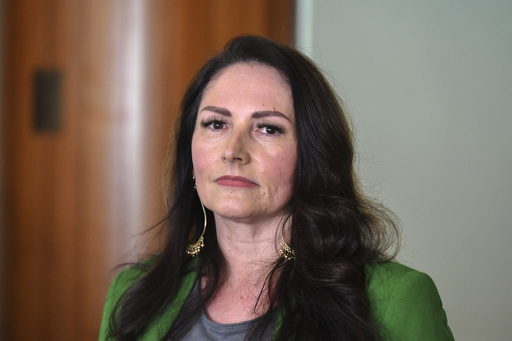
MELBOURNE, Australia — The issue of safeguarding children from the potential hazards of social media has emerged as a significant topic of discussion in Australia, where government leaders propose a plan to restrict access to platforms such as X, TikTok, Facebook, and Instagram for individuals under the age of 16. This initiative has garnered considerable political favor, with the opposition acknowledging that they would have pursued a similar measure had they been in power first.
All eight leaders from Australian states and mainland territories are in agreement with this proposal, although Tasmania has suggested setting the age limit at 14 instead of 16. Meanwhile, a diverse group of over 140 experts in technology and child welfare has expressed significant concern, signing an open letter denouncing the proposed age restriction as “too blunt an instrument” for dealing with the risks children face online. Further insights regarding the implementation specifics will likely emerge once legislation is presented in Parliament next week.
A noteworthy voice in this debate is Leo Puglisi, a 17-year-old Melbourne student who created the online streaming service 6 News Australia at the age of 11. He feels that lawmakers lack insight into the realities of the digital landscape that younger generations have navigated. “The government and the prime minister did not grow up in the social media age, and many seem to overlook that social media is an integral part of daily life today,” Leo articulated, stating that young people’s interactions often revolve around these platforms rather than traditional media outlets. He believes such a ban merely postpones the inevitable transition to social media, warning it might not effectively mitigate the associated risks.
Leo has been recognized for his contributions online, with nominations for accolades such as Young Australian of the Year, credited for encouraging informed thinking among youth. However, contrasting experiences fuel the support for the government’s stance from individuals like Sonya Ryan, a cyber safety advocate who experienced firsthand the darker sides of online engagement due to personal tragedy. Her daughter, Carly, was murdered in 2007 by someone posing as a teenager online, highlighting the dire dangers of unrestricted access to social media.
“There are extreme risks children face, ranging from exposure to inappropriate content to online harassment and bullying,” Ryan stated. She emphasized that children often lack the necessary skills or life experience to deal with such dangers effectively, leading to concerning statistics, including rising youth suicide rates. Ryan is a consultant on a national strategy aimed at combating child sexual abuse and strongly supports the age limit being set at 16, underscoring the need for protections for vulnerable youth in an increasingly digital world.
Despite this urgent need for action, potential privacy issues related to the proposed age verification methods are a hot topic. The use of age estimation technology has been criticized for its accuracy, which raises concerns that digital identification methods could be the solutions for enforcing age limitations. Australia’s eSafety Commissioner has suggested a strategy wherein they would act as a verifier of user age, holding the necessary identification data required to confirm if an individual is over 16.
Yet, Tama Leaver, an internet studies professor at Curtin University, has expressed worries that this method might lead to social media platforms becoming responsible for storing users’ identification data. The government has indicated that the responsibility for enforcing age restrictions would fall on the platforms and not the children or their guardians. “The potential outcome could result in social media networks becoming the arbiters of identity verification, which could lead to significant privacy breaches,” Leaver noted, stressing the risks associated with entrusting platforms with sensitive personal information.
Once the legislation is enacted, social media companies will have a year to devise methods for enforcing these restrictions. Ryan remains adamant that privacy concerns should not impede efforts to safeguard children online, stating, “What’s the cost if we don’t act? We must prioritize children’s safety above privacy and profit concerns.”
